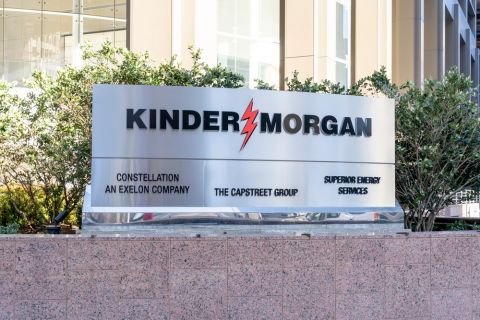
Even an older, established industry can change its ways. E&P analysts have been issuing nearly daily updates about the moves E&Ps are making to reorient their businesses toward free cash flow and capital discipline. It took was a major downturn and a refusal by investors to jump back into the business until companies had toed the line to prompt the strategy shift.
In early June, Baird Equity Research issued a note focused on recent trends of E&P free cash flow generation. In the first quarter of this year, the E&P group reinvestment rate (capex over discretionary cash flow) was 105%, compared with 133% in 2017 and the 2015 peak of 161%, according to the analysts. They expect this trend to continue.
While mid-caps and small caps posted the biggest improvement in reinvestment rate over the year-ago period, according to the report, in the first quarter the mid-caps still overspent cash flow by 40% and the small caps by 73%. The large caps spent below cash flow by 11%.
Baird noted that investors have historically taken issue with E&Ps’ “constant deficit spending, no return of capital to shareholders and relatively poor traditional metrics.” The analysts said that the first and second factors are “improving dramatically” and that the metrics will improve as a result. A broader base of investors will take note and are likely to respond positively, they suggested.
Bernstein Research analysts highlighted the combination of events that has begun to garner notice from investors. “First-quarter 2018 sits on an efficient frontier of FCF/boe (positive!), oil growth (double digits), and returns (14% profit margin). You have to go back 33 quarters to find a comparable (yet slightly worse) comp as the industry emerged from the 2008/2009 downturn.”
The Bernstein analysts based their analysis on the metrics of 57 North American E&Ps using their first-quarter data. It marked the most profitable quarter since third-quarter 2014, “and that was the end of the cycle and this isn’t,” they said. During the period, oil priced rose to $62.89/bbl, and E&Ps returned a profit of $5.50/boe on $16/boe of organic capex, their numbers showed.
As companies continued to exert capital discipline, organic capex increased just 1%, according to the report, with the result that “E&Ps spent 90% of cash flow on organic capex” in the quarter. “Can it get to the perfect world of 60%?” the analysts asked.
They noted that companies have a long way to go, however, to reduce leverage. It has fallen from the record high 42% of first-quarter 2016, but the debt-to-capital ratio remains at 38%.
Bernstein said that despite the oil and gas industry’s attractions—“a business that grew, lived within cash flow, earned $5.5 of NI on a capex of $16 in 1Q18 and now enjoys an even higher price for its commodity…what more could you want?”—interest from general investors remains sparse. It may take an extended period of this business shift to capital discipline for E&Ps to convince others that they will stay the course.
Recommended Reading
Supreme Court Takes Up Clean Air Act Venue Fight
2024-10-21 - The high court’s justices will hear arguments if the EPA’s air pollution rules should be challenged in D.C. or in regional courts.
Construction on Kinder Morgan’s Tennessee Pipeline Delayed by Stay
2024-10-15 - An appeals court panel put two permits on hold for Kinder Morgan’s pipeline to consider the project’s implications on the Clean Water Act.
LNG Sector Under Fire as Activists’ Lawsuits Surge
2024-10-10 - ESG litigation is increasingly affecting the LNG industry while, more broadly, nearly 70% of climate-related cases are filed in the U.S.
South Dakota High Court Rejects Eminent Domain Power for CCUS Pipeline
2024-10-25 - The South Dakota Supreme Court justices have placed yet another roadblock in the way of Summit Carbon Solutions’ highly contested carbon capture pipeline project.
New FERC Commissioner Calls Slow Permitting Process ‘Huge Problem’
2024-09-17 - FERC Commissioner David Rosner said the commission is aware that the permitting process is too slow overall at Gastech Houston 2024.
Comments
Add new comment
This conversation is moderated according to Hart Energy community rules. Please read the rules before joining the discussion. If you’re experiencing any technical problems, please contact our customer care team.






